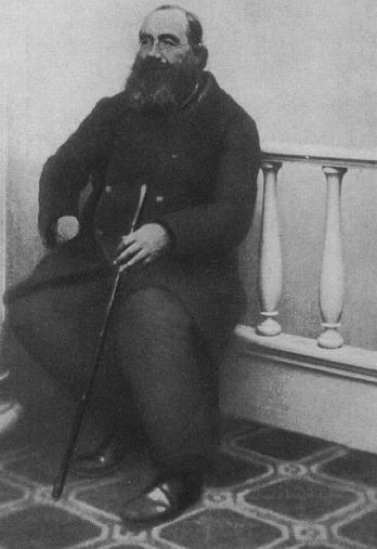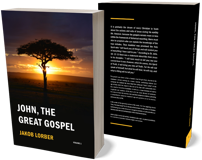God’s Scribe
Jakob Lorber was born on July 22, 1800 on the banks of the River Drau in the Village of Kanischa, in the Parish of Jahring (today Slowenia), where his father Michael Lorber owned a small farm.
Jakob Lorber grew up in an impoverished rural environment, although in a home open to art and religion. From his father’s side he inherited versatile musical talents who also taught him how to play the violin, piano and organ.
By the time Lorber attended high school in Marburg on the River Drau, he earned the necessary tuition fees as an organist at one of the local churches. He received his accreditation as a high school teacher in 1829, in Graz, Austria, the capital city of the Province of Steiermark. Not finding immediate suitable employment he intensified his musical endeavours, which consisted of composing, teaching the violin, providing singing lessons and occasionally giving a concert. At one stage he was taking violin lessons from the famous virtuoso violinist Paganini, and once gave a violin concert at the La Scala Opera House in Milan.
Despite his many abilities, he lived from hand to mouth until he was finally offered a promising position as conductor at the Opera House in Trieste. As he was about to accept this long awaited lucrative break, offering him a decent income since he was already forty years of age, he received his appointment as “God’s Scribe”. Early in the morning on 15 March 1840, after his morning prayer, he very clearly heard a voice in his heart which said: “Rise, take your pen and write!”
He abandoned all travel preparations and obediently sat down and wrote on paper what the mysterious voice dictated. It was the introduction to his first work, The Household of God. For the next ensuing twenty-four years, Jakob Lober dedicated his life to serve the Lord as a scribe and almost daily wrote for several hours what the voice dictated to him, bringing to paper more than twenty-five volumes in print. The manuscripts of his work are kept at the Lorber Verlag, Bietigheim, Germany.
Lorber never received any compensation from his writings since they were only published a decade after his death. During the last twenty four years of his life he earned his scanty income mainly by providing music lessons to children. During his writing sessions he sometimes was observed by some well educated people from Graz, like composer Anselm Hüttenbrenner and chairman of the local music association, his brother Andreas Hüttenbrenner the mayor of Graz, Secretary to the Estate Karl Ritter von Leitner a poet and author of Lorber’s biography, Leopold Cantily pharmacist, Dr Anton Kammerhuber, Dr Carl Friedrich Zimpel, and others. Lorber never had to reread or correct anything he wrote and the following day he resumed writing without rereading the last sentence from the previous day to orientate himself, even if he was interrupted in the middle of a sentence.
In 1858 in a letter to a friend, Lorber wrote:
“’As to the Inner Word, how this is perceived, I can only say, speaking of myself, that I always perceive the most holy Word of the Lord in the region of my heart, like a thought of utmost clarity, pure and light, as spoken words. No one else, however close to me, can hear anything of a voice. Yet for me this Voice of Grace sounds forth more clearly than the loudest material sound. That, however, is really all I can tell you from my experience.”
No words can express the infinite greatness and endless depths of these writings encompassing all aspects of life in the most clearest, simplest of words. From the minutes micro-cosmos to the borders of the physical creation and infinitively beyond, from the darkest realm of materialism to the deepest depths of the spirit, including all imaginable facets of human behaviour and its impact on the creation, even explaining the very nature and essence of God Himself, leaving no doubt whatsoever to the origin of this New Revelation, namely the Origin of the creation Himself – Jesus Christ our God, Creator and heavenly, most loving Father. If science has labelled the followers of the New Revelation “Liberal Universalism”, I think they got more or less right.
Despite the vastness of the content of the New Revelation, in the final analysis everything that is said describes the meaning of the words “Love God above all and love your neighbour as yourself”, for all conceivable levels of human intelligence.
Jakob Lorber died on August 24, 1864. He foresaw his own death.

